Mari’s Blog
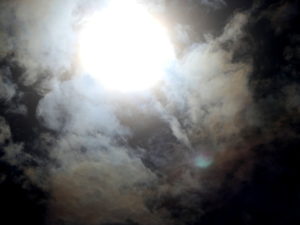
The web of life and death
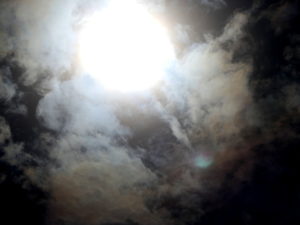 Life is the connecting tissue of the web of form with the divine All. Life is consciousness. Christ-consciousness is awareness of what is. It is the awareness of connection and relationship of All to All. It is the merging of the unknowable and the knowable through movement, expression, and being. D.Day:11.8
Life is the connecting tissue of the web of form with the divine All. Life is consciousness. Christ-consciousness is awareness of what is. It is the awareness of connection and relationship of All to All. It is the merging of the unknowable and the knowable through movement, expression, and being. D.Day:11.8
Three weeks ago, my mom died.
Without even realizing it, I drifted yesterday to “the month after Mom died.” September. It will be a literal month next week. Why do I count these things? I don’t know. I just do. In truth it seems much longer, and I wonder if I am off, even when I know I’m not. I count on my fingers anyway. It was only three weeks ago? Three weeks, a funeral, a burial, reading of the will, the beginning of the dissembling of a life. And yesterday a family outing to the State Fair.
I wrote nothing yesterday to mark the beginning of the new month, a month during which Mom’s birthday will come—the first without her (she would have been 93)…and then a week later my sister Susan’s…her first without her mom…and so on it will go.
The word “lineage” came to me before I awoke today. Its source is the word “line” which is from the Latin linea, literally linen thread, n. use of feminine, of lineus, of flax. Flax itself, of the German word flachs, is to plait, interweave. And flax, the plant, a slender, erect annual with delicate blue flowers and seeds used to make linseed oil, holds the fibers in its stem that are spun into linen thread.
A “line” can mean a boundary, or a course of action, or the path one takes, and lineage itself is as I would have imagined: a direct line of descent from an ancestor. But of course, as a family tree demonstrates, what a lineage does is connect and fan out into a “family tree” or a web of interconnections. None of it speaks to me of particular feelings or why it arose in ways other than the usual, except for with the Course, which speaks of another lineage. And of course, I do not know what I mean, which is where inspiration always starts.
It’s taken three weeks to get here, three weeks of feelings that left me spent, and full of memories and tears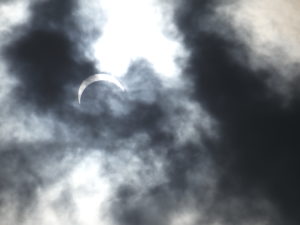 and calls for love and forgiveness and the need to dwell…to not move on, to not even move “in” to deeper meanings too soon. No, after a death, all is immediate and raw and tender.
and calls for love and forgiveness and the need to dwell…to not move on, to not even move “in” to deeper meanings too soon. No, after a death, all is immediate and raw and tender.
Mom was only in the hospital three days.
After the first day I knew: Mom was going to die. I was going to be a motherless child. All the years of preparation, the knowing it was coming, especially the last—five or so—and then the shock: my mother is going to die. Then the full realization of her fragility, the wondering how she got up and made herself coffee the day before.
The knowing: Nothing will stay the same.
When I got to the hospital the first morning Mom asked, “Can’t they just knock me out so I don’t have to feel like this?” I ask. Am told, “Oh no, that would just depress her system more.”
She is like a child in an adult bed. She keeps sliding down and so can’t use the hospital tray table. I balance a tray on her lap with Jello and it gets all over the bed clothes as she, in her wobbly way, brings spoon to mouth, not wanting, of course, to be fed. Still in her way barking orders: “Margaret, (my birth name) call Michael. Margaret—you eat that.”
Next day: She agrees to a “do not resuscitate” order. She is grey with no makeup, no wig, and no hair. A monosyllabic statement of a person reduced to her barest aliveness.
A eucharistic minister comes in and offers us communion. She tilts her head and there it was, the sweetness so seldom seen, a look that came with accepting communion, with being prayed for, with praying. We say the Our Father.
The following day the kids come to visit. Her youngest great-grandson, my grandson Samuel, sits with her on the bed, and she wears the same sweet look, as if they’re communing from that other zone, he still attached to heaven and her on her way.
Since then, the days continue on, still screwed up. I have to keep thinking, What day is it? It began the next day, the asking and the answering: It is Saturday, August 12. Mom died yesterday, August 11, 2017 at about 11:30 p.m. We were at United Hospital. It is a litany. What day is it? It is two days since Mom died, that makes it, what? A Sunday? It is two weeks and two days. Yesterday it was three weeks.
Not feeling up to writing I do a video I mean to post to thank those who offer condolence. And then the “bringing to completion” escapes me. My technology goes on the fritz as if forcing me to stop.
 In the midst of it, during the Eclipse of 2017, the feminine moon covers the masculine sun. Something literally feels different.
In the midst of it, during the Eclipse of 2017, the feminine moon covers the masculine sun. Something literally feels different.
Despite my inability to describe it, I know it is a new day. A new era. Mom is gone. No more phone calls that begin, “Hi Margaret, I know you’re busy.” No more seeing her sweet little body shrink.
I heard her last words. My brother had just arrived from California. I was sitting at the head of her bed and took her hand. “Mom, Johnny is here,” I said. “Do you want to talk to him?”
She opened her eyes and closed them again. “No,” she said, “I’m too tired.”
Our many conversations the last years:
“How are you, Mom?”
“Oh, about the same. Tired.”
And so today, three weeks and one day later, the inspiration of lineage—sat with, reveals to me that the Course is present in the way of lineage, the way of a connecting and a passing on, one to another, the line of new life, and the weaving of a new web.
In the early part of A Course of Love Jesus speaks of the web in one way: As a “complex web of use and abuse” (C:9.43), and as “dependencies that … over years and years create a web of intricate design, a snare or trap that seems impossible to dismantle because of its interconnections.” (C:14.20).
In the third Treatise the web is expressed differently:
T3:9.2 While you cannot now see the chain of events that will make these ideas into a new reality, you can trust that they will be there, spreading out like a web, much as the ego’s ideas of separation once did.
In our days on the mountain, there are several expressions of the web:
In Day 18.1 we hear of the way of Mary and are told that many will follow our hearts “to a bypassing of the final stage of the old and to anchoring the new within the web of reality.” …
One way is active. One way is receptive. Yet the ways are not separate any more than Jesus was separate from Mary—or any mother separate from her child. The ways are rather complementary and symbiotic. Together they return wholeness and will bring about the completion of the time of Christ. This symbiotic working together will be essential for the birth of the new and in truth symbolizes it in form and process. As within, so without. Mary represents the relationship that occurs within, Jesus the relationship that occurs with the world. So do each of you. These two ways also represent God and Christ-consciousness, the extension of God. God is everything in heaven and on earth and is in everything on heaven and on earth. Thus, God represents the world without. Christ-consciousness is God within you, your particular manifestation of God and relationship with the God within. D.Day:18.2
There we have it: the mother’s place in a trinity of “ways.” The way of the mother begins within, and mother and child are not separate, even when the child, as the child Jesus once did, moves into maturity in the world, a world in which all that was created was created by God. A trinity of the ways of Mary, Jesus, and God. The trinity of a way of union.
I’ve written of my mom many times in my blogs, mainly about going to church with her. Last Christmas was the first time she did not feel strong enough to attend Christmas Mass, and it was as if in realizing it, she gave in. This year we have not been at Mass on Saturday afternoons. Instead, I have brought her lunch and in the last weeks we would watch a movie. The final movie we watched was “Singing in the Rain,” the movie about voice coming to the movies. We are, it seems, in a similar time of bringing voice, or expression, to all we can within God’s creation.
I was glad “Singing in the Rain,” with its joyful theme song, was the last movie Mom and I saw together. It rained the morning of her funeral and the refrain kept going through my mind. This “refrain,” the refrain of a woman no longer tired, continues to accompany me:
I’m singing in the rain
Just singing in the rain
What a glorious feelin’
I’m happy again
I’m laughing at clouds
So dark up above
The sun’s in my heart
And I’m ready for love
There’s an additional refrain:
Why am I smiling
And why do I sing?
Why does September
Seem sunny as spring?
Why do I get up
Each morning and start?
Happy and head up
With joy in my heart
Why is each new task
A trifle to do?
Because I am living
A life full of you.
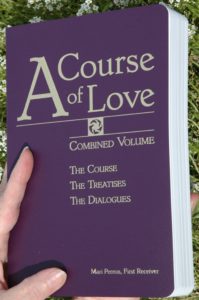
The course we have been set upon
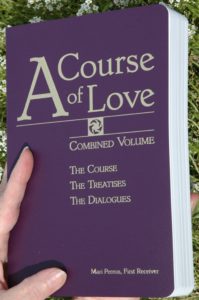 When you remove yourself from the self-held position of “meaning-giver,” you let things be what they are and, allowed to be what they are, their meaning is naturally revealed. C:22.15
When you remove yourself from the self-held position of “meaning-giver,” you let things be what they are and, allowed to be what they are, their meaning is naturally revealed. C:22.15
My friend Lee said the other day, after I’d sent him a bit of writing, that he was “taking it in,” and that got me musing on the “entering into” that we do as readers, as people, not just with the written word but with the spoken word, or with music, or within a relationship.
I feel like one of the hallmarks of receptivity—the kind that produced A Course of Love, or the kind that occurs when we write or read from our deepest places, is that we “take in.” Pondering this, I began to wonder if it is that we have “taken in,” or that we have “been” taken in. Then I imagined both occurring at the same time. The giving and receiving happening as one.
Next, I wondered, what happens then? What happens when this “taking in” occurs, when ACOL, for instance, enters without filters? And what I answered was that then, “It is what it is.” It is there as unclassified meaning. It is not “what we think it is” but “what it is.” It is not the meaning we give it, but the meaning that is there.
In our former way of making meaning, we gave “all meaning to everything.” It became a world in which “Nothing is what it is, but only what it is to you.” (C:22.15)
There is an amorphousness, a purposeful amorphousness in this way of A Course of Love, a way that bypasses thinking so that what is there is “just there.” It is a huge reason, in my view, for the end of learning. The “meaning” of a beautiful passage in such a work, is not the same as the beautiful passage. We “make” meaning. We receive beauty and knowing.
The psychologist James Hillman says, “None of the isms,” can save the world from “the catastrophe inherent in our very idea of the world.”
“To pursue this re-vision of psychic reality implies that we shall have to let our present sustaining paradigm break down, a catastrophe of the mind rather than of the world, allowing to emerge a renaissance of soul in the midst of the world.”
The move to the heart can’t be accomplished “without moving … the seat of the soul from brain to heart and the method … from cognitive understanding to aesthetic sensitivity. With the heart we move at once into imagination.”
The collapse of egoic thinking, is a “catastrophe of the mind.”
I was told as ACOL began that it would create a new renaissance. Self-love could do that for us as we come into our power and let go of “the way things are,” for a new way. How amazing. How miraculous that our way begins with ceasing to use the mind as we “take in” Jesus’ words, continues with the union of mind and heart in wholeheartedness, takes us to the end of learning, and calls us to dialogue, Self-expression and creation of the new. What a groundbreaking, world-shattering, revolutionary course we have been set upon.
As we “let our present sustaining paradigm break down,” our former way of knowing, our “catastrophe of the mind,” occurs, and a new way is here. The new way doesn’t arrive in a flash, but “quietly infiltrates in unguarded moments.” (D.12.12) We do not “think” our way through life, but “draw knowing forth from the well of spirit.” (D:11.13)
You realize now that life itself is a channel and that you are constantly receiving. . . . If giving and receiving are one, then giver and receiver are also one. It is only you who can do anything with the wisdom, guidance, or information that you receive in union as a channel of the divine life force that exists in everything and everyone. D:Day21.6
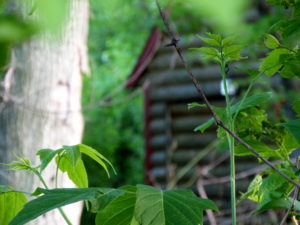
My refuge, my revelation
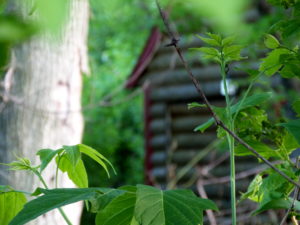 “My refuge, my revelation,” comes to me as words strung together about which I don’t know the meaning. Suddenly a phrase is there, playing in my mind.
“My refuge, my revelation,” comes to me as words strung together about which I don’t know the meaning. Suddenly a phrase is there, playing in my mind.
I go to look up “refuge” and read: to provide with additional fuel.
Woops. That was “refuel.”
I move my eyes down to the word I was looking for. Refuge: to escape, to flee, more at fugitive. Hmmm. Not what I expected. Next: shelter or protection from danger or distress. Something to which one has recourse in difficulty.
That last one’s a little more like it.
The meaning of words has fascinated me since I read Thomas Moore’s Care of the Soul twenty-five years ago. He was the first writer I knew to look to the origins of words for their meaning. For a while, I followed in his way. Then I stopped. Now, I return to the dictionary occasionally. I still keep a real Webster’s—two in fact. One in the house and one in the cabin.
Regardless of its meaning, I love the sound of my attendant phrase. I love the feeling that comes with the tone and idea of “taking” refuge. I take refuge, and when I do, I find revelation. It’s true. It’s as if revelation follows me into the alternate zone that places of refuge offer.
This latest phrase came to me on my evening walk. It was a hot day and I hadn’t really been planning to walk until I realized the garbage cans were still at the curb after the day’s pick-up. When I went to roll them up the driveway I saw that it was no longer too hot, and the breeze was fine and the moon was nearly full. And so I went in for my key and my camera. As I started out I heard, “my refuge is my revelation.”
I’ve written a couple of posts for this blog lately that I didn’t get around to posting. By the time I’d spent the urgency of the writing, they were done, and then…oh well. But there’s another reason, probably, that I didn’t post them. I’d started writing for someone “out there,” not for me. Not that I’m not acknowledging “you” as I’m writing this, but it was different. You know—more like writing an article. Writing in that voice that’s different than the one found in places of refuge. Different than the private voice. The personal voice. The “just musing” voice that you have in those interior places, the hidden ones, the ones “under cover.” The ones where you’re not taking a stand. When you don’t have something to say or to defend or to promote. Just . . . a voice.
voice. The “just musing” voice that you have in those interior places, the hidden ones, the ones “under cover.” The ones where you’re not taking a stand. When you don’t have something to say or to defend or to promote. Just . . . a voice.
That’s my place of refuge, that place of having nothing to say. That’s my revelation. A phrase pops in unannounced like someone sharing with me. I share with you.
That’s what this whole thing is like. This new way that needs no promotion yet needs voices, words, sharing. Words that share in that place of refuge where nothing anyone is asking of you gets in. Where nothing is asked. Nothing is told. Where you are accompanied. Where what comes, comes as revelation.
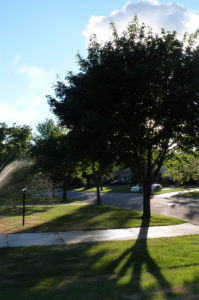
Beginning and ends of day
What hampers new beginnings of all kinds within the human experience are ideas that things cannot be different than they once were. T3:15.2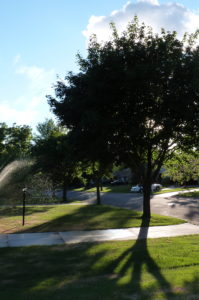
My early morning time in my cabin, and early evening walk through the neighborhood, are very different, and yet much the same. I look out the window of the cabin at morning plays of light. It’s my writing time, full of reverie. In the evening, I take my camera and see with childlike eyes. I walk past giant pines and remember how I’d wonder, as a child, what lurked beneath them—and how I would often go investigate. I pass the rise and fall of a sprinkler and remember what it felt like to answer the question of what it would feel like to walk beneath it. I recall summer rains when my mom would let my sister and I go out in the alley, with umbrellas over our heads and bathing suits on our young torsos. We’d go down the hill to the end of the alley where the rain collected, and splash, barefoot, in the growing puddles.
I sometimes pass other walkers on my suburban street, and can see, in a glance of the body language of their walk, whether it is a troubled walk, or a walk taken for exercise. Me? I meander, camera slung over my shoulder.
Everything seems a play between the hidden and the obvious, the obscure and its revelation.
Me too.
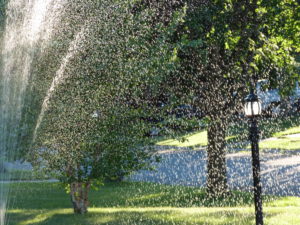 I’ve noticed revelation coming in ordinary ways lately. These revelations are about me. Suddenly, I know something about myself that I didn’t know before. What was hidden has come to consciousness. These revelations, while ordinary, are not insignificant. What comes to consciousness changes me. . . instantly. My view of myself is different, as different as morning and evening, as one day’s walk through the neighborhood from the next.
I’ve noticed revelation coming in ordinary ways lately. These revelations are about me. Suddenly, I know something about myself that I didn’t know before. What was hidden has come to consciousness. These revelations, while ordinary, are not insignificant. What comes to consciousness changes me. . . instantly. My view of myself is different, as different as morning and evening, as one day’s walk through the neighborhood from the next.
I invite you to notice ordinary revelations about yourself.
You must now birth the idea that human beings do indeed change. While you have known instinctively that there is a core, a center to each that is unchangeable, you must now give up the idea that this core or center has been represented by the past. You must forget the idea that the future cannot be different than the past. T3:15.7

Seasons

Creation balanced with rest is the pattern that has been taken to extremes within your world. You think of birth as creation and death as rest. You do not realize that your nature, and the nature of your life, like that of all around you, is governed by seasons natural to the state of love, seasons of regeneration. T4:4.2
There is such a rhythm to nature. If I kept track of such things in a manner more sufficient than my memory, I’d remember that the lavender bushes bud first, and then the fruit trees. Next, the cottonwoods shed their fluff, and then the peonies and daisies begin to bloom, and the dragonflies appear, and then…full summer has arrived. This is the moment in which I found myself walking through the neighborhood last night … aware of the full arrival.
I walk with my camera always. “I never know what I’m going to see,” is the reason. Something about this seems to sum up my attitude toward life.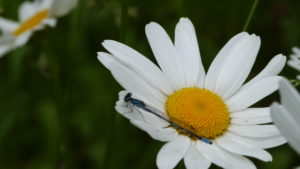
Even though there will be plenty to photograph all summer, I have this feeling about summer. Now it is here, and my “feeling” is that despite all the growth of the various flowers and the tomato plants and the buds that will become fruit, it will simply be “summer” until fall arrives. And then fall, the whole of it, like the whole of spring, (my two favorite seasons) will feel again like constant change on a different scale. It makes no sense to feel this way, yet I do, and I allow this peculiarity. It is a “usualness” I feel about summer—everything is “the usual” green, everything is blossoming (like usual), everything is enlarging (and so on)! The light feels more steady and less magical as well, and soon I begin to long for change.
We people have our seasons too! Often I find mine reflected in the books I’m reading.
Recently I felt a yen to return to my old friend, Merton. The first book that I saw when I went looking for one of his on my shelves, was a compilation of his journals from the years titled, “Turning Toward the World.” I did not choose it for the title and yet I soon wondered if it had some significance—if it was one of those instances of the book finding me.
Just as I know I’ve stood at this moment of summer before, I know I’ve felt this sense of “turning toward the world” before. The difference now—thankfully, is that I can see, that this, too, can be a “season” and so not hold the scariness it did when I wondered if once I turned toward the world, I would not be able to return to solitude.
Merton’s journals, in their titles, tell of his various seasons:
Book 1: Run to the Mountain: The Story of a Vocation (1939-41)
Book 2: Entering the Silence: Becoming a Monk and a Writer (1941-52)
Book 3: A Search for Solitude (1952-60)
Book 4: Turning Toward the World: The Pivotal Years (1960-63)
Book 5: Dancing in the Water of Life (1963-65)
Book 6: Learning to Love: Exploring Solitude and Freedom (1966-67)
Book 7: The Other Side of the Mountain: The End of the Journey (1967-68)
What would you and I name our seasons? Wouldn’t it be a wonderful exercise?
In 1960, just realizing that he has reached a point where he has acquired the power to be heard, Merton asks himself, “Who am I?”
He answers: “A priest and a writer, and one who has the gift of speaking intelligently I hope. Hence I must also think clearly, and pray and meditate and when circumstances require it, speak. And speak to as many as will listen to me. About things concerning their happiness and their destiny—along with my own. In a word, about salvation.”
How many of us don’t ask ourselves, “Who am I?” Who am I to have something to say, something to give, something to contribute?
And yet, in ACOL we are assured repeatedly how much we each matter. In another quote from “A Treatise on the New” we hear:
To sustain Christ-consciousness in form is creation of the new. My one example life could not sustain Christ-consciousness for those who came after me but could only be an example. What you are called to do is to, through your multitude, sustain Christ-consciousness, and thus create the union of the human and the divine as a new state of being. (T4:4.18)
How wonderful it is to accept our true Selves (the elevation that allows the in-forming of our divinity), to accept our seasons, to accept a new state of being.
Solitude and vocation and writing would surely be among my seasons, but I feel my current and hopefully coming season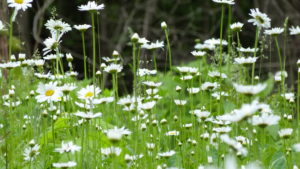 will emphasize dialogue. I am so excited to be experiencing dialogues more widely and to feel in movement with it.
will emphasize dialogue. I am so excited to be experiencing dialogues more widely and to feel in movement with it.
Dialogue is a way for each of us to answer the Who am I question boldly (and safely), with each other, in unity and relationship. We enter dialogue in a form so loosely held, that in its loosely held moments, and with our heart-felt yearning to be and to share who we are . . . we do.
What seasons are passing for you? And which are coming?

